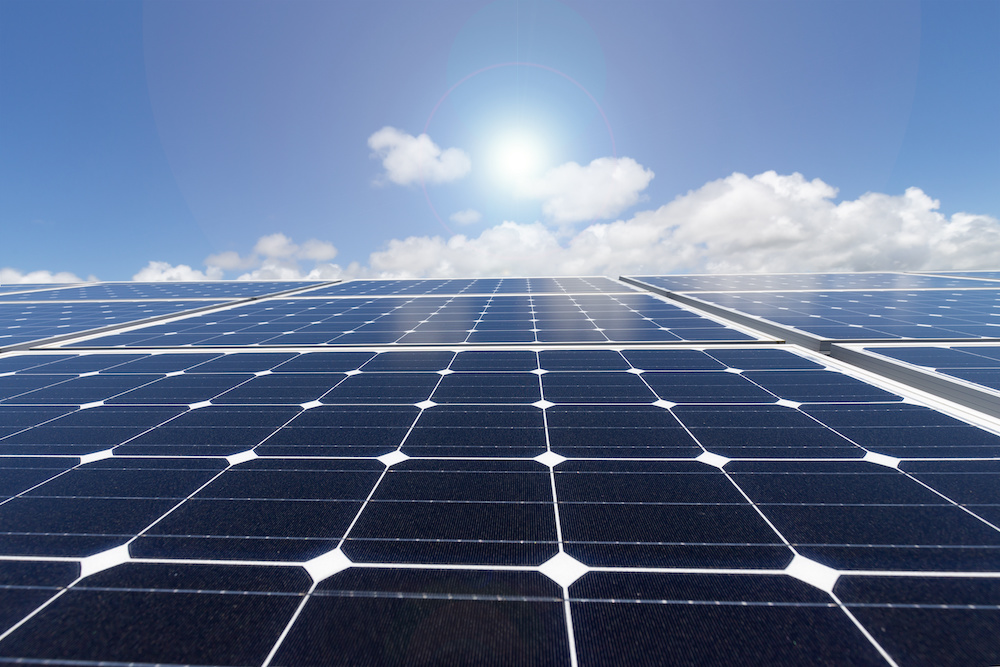Public and private Initiatives to Address Photovoltaic (PV) Modules Waste — Japan
📗 Column
Since the introduction of the feed-in-tariff (FIT) system in 2012, Japan has seen a sharp increase in solar installations. While PV-specific waste regulations do not exist in Japan, various efforts have been made to promote proper end-of-life management of PV modules. In this post, we will look at initiatives by Japan’s public and private sectors to address PV waste challenges.

Efforts by the public and private sectors
In response to the rapid increase in solar installations since Japan’s feed-in-tariff (FIT) scheme began in 2012, various efforts have been made to promote sustainable end-of-life management of PV modules.
- Japan Photovoltaic Energy Association (JPEA), in December 2017, released voluntary guidelines for its member companies, such as manufacturers, importers and resellers of PV modules, to disclose chemical materials contained in PV modules to enable appropriate treatment of end-of-life PV modules[1]; companies disclosing information based on guidelines are made available on the JPEA’s website[2]. JPEA also compiles a list of companies with proper PV recycling capacities[3].
- The New Energy and Industrial Technology Development Organization (NEDO) has been leading PV recycling R&D in Japan. In partnership with the private sector, NEDO conducted a PV recycling technological development project from the fiscal year 2014 to 2018; their R&D focus included the development of low-cost PV disassembling technology and reuse technology[4][5].
- In July 2021, PV CYCLE, a European non-profit organization offering PV waste management services, and the Akita Prefectural Resources Technology Development Organization (Akita PRTDO) jointly created PV CYCLE Japan to establish a scheme for sustainable end-of-life PV management in Japan[6]. Furthermore, in November 2022, Tohoku Electric Power, the president of one of PV CYCLE’s committees, started a Proof of Concept (PoC) on PV reuse and recycling in Miyagi Prefecture[7].
- In November 2022, Itochu, a Japanese trading house, and ROSI, a French startup, entered into capital and business alliances. Through these alliances, Itochu aims to promote and expand the PV recycling business. ROSI is expected to launch a commercial recycling plant in France at the beginning of 2023[8].
- In November 2022, Japanese trading house Marubeni announced the signing of a memorandum of understanding with Sompo Japan Insurance and Sompo Risk Management for the appropriate reuse and recycling of used PV modules. Through this partnership, Sompo Japan Insurance will provide a defect warranty for secondhand PV modules that Marubeni intends to sell from the fiscal year 2023 through its information management platform[9].
Additional efforts need to be made in Japan to facilitate the reuse and recycling of PV modules. Nevertheless, the issue of PV waste is gaining more attention both from the public and private sectors. Check out more of our posts to learn how other countries and states are responding to PV module waste issues.
References
[1] Japan Photovoltaic Energy Association (JPEA), “Shiyouzumi taiyoukoudenchi mojyuru no tekisei shori ni shisuru jyouhouteikyou no gaidorain (dai ippan) [Guidelines for Information Disclosure to Facilitate Proper Treatment of End-of-Life PV Modules],” Dec. 2017. Accessed: Feb. 09, 2023. [Online]. Available: https://www.jpea.gr.jp/wp-content/themes/jpea/pdf/t171211.pdf
[2] Japan Photovoltaic Energy Association (JPEA), “Jyouhou teikyou gaidorain sandousha ichiranhyo [A List of Companies Supporting Information Disclosure Guidelines].” https://www.jpea.gr.jp/document/handout/member-list/ (accessed Feb. 12, 2023).
[3] Japan Photovoltaic Energy Association (JPEA), “Tekiseishori (risaikuru) no kanouna sangyouhaikibutsu chukanshorigyoushamei ichiran [A List of Intermediate Processors Capable of Proper PV Treatment (recycling)],” 2022. Accessed: Feb. 09, 2023. [Online]. Available: https://www.jpea.gr.jp/wp-content/uploads/220909_recycle.pdf
[4] New Energy and Industrial Technology Development Organization (NEDO), “Taiyoukouhatsuden risaikuru gijyutsu kaihatsu purojekuto [PV Recycling Technological Development Project].” https://www.nedo.go.jp/activities/ZZJP_100070.html (accessed Feb. 09, 2023).
[5] K. Komoto, “PV Recycling in Japan, IEA PVPS Task12: Industry Workshop,” Nov. 2018. Accessed: Feb. 11, 2023. [Online]. Available: https://apvi.org.au/wp-content/uploads/2019/04/Session-3-PV-Recycling-in-Japan-Komoto.pdf
[6] PV CYCLE, “PV CYCLE and AKITA PRTDO create PV CYCLE JAPAN.” https://pvcycle.org/2021/07/01/joint-take-back-and-recycling-scheme-for-japanese-pv-market/ (accessed Feb. 09, 2023).
[7] Tohoku Electric Power, “Shiyouzumi taiyoukou paneru no riyu-su, risaikuru suishin ni muketa gutaitekina torikumi kaishi nitsuite — PV CYCLE JAPAN ‘Chiiki shushu moderu kentou iinkai’ Miyagi de jisshou jigyou wo kaishi [Launch of Detailed Activities to Promote Reuse and Recycling of End-of-Life PV Panels — PV CYCLE JAPAN ‘Local Collection Model Assessment Committee’ to Start POC in Miyagi Prefecture].” https://www.tohoku-epco.co.jp/news/normal/1229789_2558.html (accessed Feb. 09, 2023).
[8] ITOCHU Corporation, “ITOCHU Announces Signing of Capital and Business Alliances with ROSI, a Solar Panel Recycling Business Operator.” https://www.itochu.co.jp/en/news/press/2022/221129.html (accessed Feb. 09, 2023).
[9] Marubeni Corporation, Sompo Japan Insurance, and Sompo Risk Management, “Memorandum of Understanding for Appropriate Reuse and Recycling of Used Solar Panels.” https://www.sompo-japan.co.jp/-/media/SJNK/files/english/news/sjnk/2022/e_20221121_1.pdf?la=ja-JP (accessed Feb. 09, 2023).
Author: Saki Kobayashi / 小林 さき